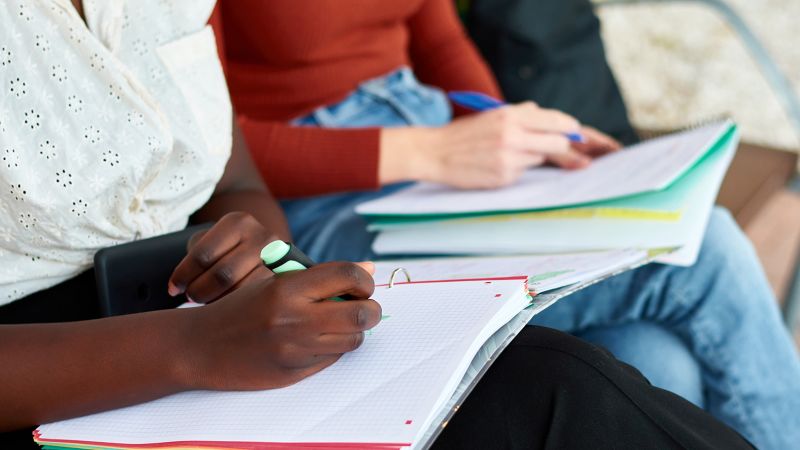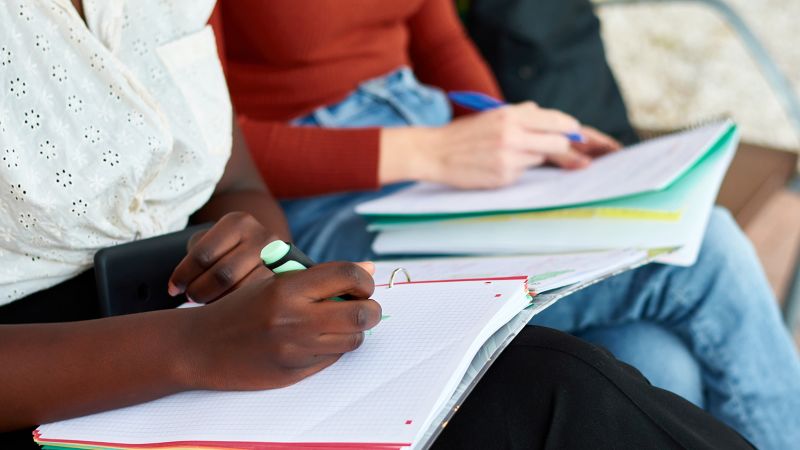
Editor’s Note: Sign up for CNN’s Adulthood, But Better newsletter series. Our seven-part guide has tips to help you make more informed decisions around personal finance, career, wellness and personal connections.
Once a week, ADHD coach Robin Nordmeyer joins a Zoom meeting with other coaches while she writes blogs, does administrative tasks or works on content for presentations she has been putting off.
Nordmeyer, who has ADHD, isn’t necessarily using the meeting to collaborate with others — she just needs their presence as a motivator to help her get things done.
“I run a business, and I have to balance lots of different areas of the business,” said Nordmeyer, cofounder and managing director of the Center for Living Well with ADHD-Minnesota, an ADHD coaching group near Minneapolis serving all ages.
“Some of those things come very easy — like, they’re in my wheelhouse, they energize me, I can’t wait to get to them,” Nordmeyer said. “And some of those things are a little more tedious, or I have some resistance around them.”
What Nordmeyer does to get through those tougher tasks is sometimes known as “body doubling,” a productivity and self-help strategy that involves working with another person around to help improve motivation and focus. It has been popular for some time among people with ADHD — attention-deficit/hyperactivity disorder — especially during the pandemic.
“The idea is that the presence of another is essentially a gentle reminder to stay on task,” said Billy Roberts, clinical director of Focused Mind ADHD Counseling in Columbus, Ohio. “For folks (with) ADHD whose minds tend to wander and get off task, the body double somehow works as an external motivator to stay on task.”
Body doubling isn’t just for people with ADHD, but like many “coping strategies, something that can be helpful for anybody is more central and important for folks with ADHD,” said Dr. J. Russell Ramsay, founding codirector of the University of Pennsylvania’s ADHD Treatment and Research Program.
Why body doubling works
A neurodevelopmental disorder commonly diagnosed in childhood but lasting into adulthood, ADHD stems from underdeveloped or impaired executive function and self-regulation skills, according to Harvard University’s Center on the Developing Child. Those skills help us to plan, focus attention, remember instructions and multitask. Symptoms of ADHD include inattention, hyperactivity and impulsivity — so people with this disorder might have trouble concentrating, staying organized, managing their time or controlling their impulses, which can affect both their work and personal lives, Roberts said.
If people with ADHD have no intrinsic interest in a task, Roberts said, they typically struggle with a lack of internal motivation to complete it or even to get started. Body doubling provides that motivation, experts said.
“It also draws on our social selves,” Ramsay said. “A lot of people with ADHD will say, ‘I have a hard time getting started on this if I’m doing it for myself, but if I know somebody else is relying on me, if somebody else is waiting outside for me to show up to go for our walk, I’m more likely to go and be there because I don’t want to let them down.’”
There doesn’t appear to be extensive research on body doubling for productivity, according to Roberts and other experts. “But I do know that the idea of externalizing motivation is a long-standing, evidence-based mechanism for managing ADHD,” Roberts said.
In theory, the method is pretty straightforward, but there a few factors to keep in mind to make the most of it.
How to use body doubling effectively
Body doubling can help with pretty much any task you’re having a hard time getting done — whether that’s work, chores, exercise, schoolwork or paperwork. The other person doesn’t have to be doing the same thing as you, unless the activity you need body doubling for — such as exercising — requires that assistance.
Be choosy about whom you ask to be your body double. The person should be as committed to you completing your work as you are, Roberts said — not distracting you with conversation or anything else. Choose someone who usually makes you feel comfortable and safe, and who can encourage you when necessary.
“It’s important to keep a body double session focused on its purpose,” Nordmeyer said. If conversations do come up, table them for later, perhaps during a break or dinner.
Asking someone to be your body double might feel awkward, but Roberts said the best approach is often a straightforward one. You could say, “It’s something I heard can help with productivity. Would you mind just being around me while I work on this? Maybe you have something you could work on, too.”
You could also barter with them, in a sense, by making an offer such as, “You help me organize my garage on Saturday; I’ll help you organize your home office on Sunday,” Ramsay said.
Those small first steps of seeking a partner and setting up the session get you started and keep you going, he added.
Scheduling regular body doubling sessions is one option, Nordmeyer said, or just ask whenever the need arises. How transparent you are about why you need a body double is up to you, as is whether you have more than one body double.
“It depends on the individual,” Roberts said. “If it turns into a distraction more than mindfulness, accountability or behavioral support, then you just want to rework things. You can kind of tinker with things until you find what works.”
Virtual body doubling
If you don’t have a friend or colleague to be your body double, you aren’t out of luck.
Some TikTok users, such as Allie K. Campbell, regularly go live while they’re working so others can use them as a virtual body double. There are also body doubling or coworking platforms or apps such as Flown, Focusmate or Flow Club.
In virtual sessions, “most body doubles ask you to share your camera, and a lot of people are real nervous about being visible,” Nordmeyer said. “The purpose of that is to make sure you’re still in your chair working. … But there might be other ways you can create that accountability through a chat feature.”
The benefits of body doubling are likely why some people like working on things in coffee shops, libraries or coworking spaces — which can be sources of passive body doubling if you don’t have someone to ask, Roberts said.
“Some people work better with community support and just the awareness of other people around them,” he added. “You saw that a lot with the pandemic, like people learning more about the kinds of structure they needed.
“We all think and work differently, and there’s nothing wrong with that,” Roberts said.











More Stories
Ah-Choo! Protect yourself!
How a simple phone call can reduce veteran suicide rates
Democratic Gov. Jared Polis enthusiastically supports RFK Jr. for health secretary